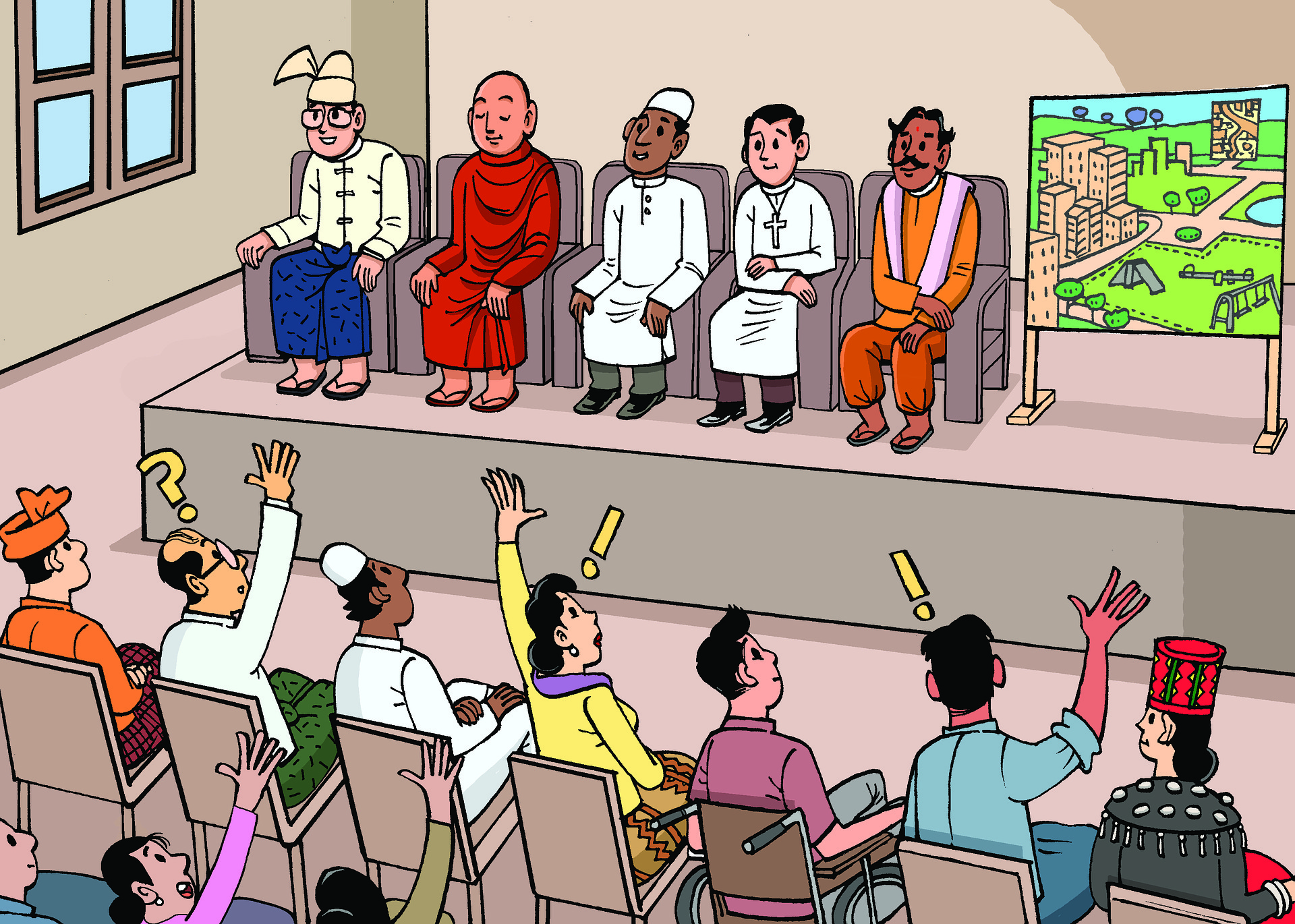Kapanlagi.com - The meaning of tolerance is a attitude of mutual respect and appreciation between groups or individuals. Tolerance or tolerant in language comes from the Latin word 'tolerare' which means patiently allowing something.
Tolerance that we know is giving an attitude of mutual respect among fellow human beings. Even though they are different in ethnicity, race, religion, opinions, and so on. This attitude of tolerance is what makes a nation united despite their differences. Indonesia is also one of the countries that currently always uses tolerance to unite the nation and its people.
However, besides the meaning of tolerance, of course, you need to know other things about this tolerance. What are the types of tolerance and what are the attitudes of tolerance in everyday life. Therefore, from various sources, here is the general meaning of tolerance as well as from experts, along with types and good attitudes of tolerance in everyday life.
1. Understanding Tolerance in General

Illustration (credit: Pexels)
The general meaning of tolerance, as quoted from Wikipedia, is a behavior or attitude of humans that does not deviate from rules, where someone respects or appreciates every action taken by others.
Tolerance can avoid discrimination, such as the existence of various groups or classes within a society. Tolerance occurs because of the desire to avoid disputes that harm both parties.
From the above explanation, it can be concluded that tolerance becomes a container or wise attitude of humans to accept differences. Avoiding discrimination that can trigger division and avoiding conflicts that harm both parties.
2. Understanding Tolerance According to Experts

Illustration (credit: Pexels)
In addition to the general meaning of tolerance, there are also meanings of tolerance according to experts. All these meanings of tolerance according to experts can be a reference for those of you who want to understand tolerance more deeply. Here are some definitions of tolerance according to experts that you can know:
1. According to Djohan Effendi, tolerance has a very broad meaning. According to him, tolerance is the attitude or behavior of a person who respects various differences. The differences referred to can be differences in behavior, religion, or culture. Therefore, if someone respects the differences of others who are physically or psychologically different, it can be called a form of tolerance.
2. According to Purwadarminta, tolerance is an attitude that someone has in allowing differences between themselves and others. The scope of the differences is quite broad, including differences in opinions, views, or beliefs.
3. According to Tillman, tolerance is an attitude of mutual respect, through understanding, with the aim of peace. Tolerance is mentioned as an essential factor in the creation of peace.
4. According to Max Isaac Dimont, the definition of tolerance is an attitude of recognizing peace and not deviating from recognized and applicable norms. Tolerance is also defined as an attitude of respecting and appreciating the actions of others.
5. According to Friedrich Heiler, the definition of tolerance is the attitude of a person who recognizes the plurality of religions and respects every follower of those religions. He stated that every religious believer has the right to receive equal treatment from everyone.
6. According to Michael Walzer, tolerance is a condition that must exist within individuals or society to fulfill its goals. The goal is to live peacefully amidst existing differences, whether historical, identity, or cultural differences.
3. Types of Tolerance

Illustration (credit: Pixabay)
Every type of difference in society has different examples of applying tolerance. That is why tolerance has its types, both in terms of social, cultural, and political environments. Therefore, here are several types of tolerance that can be realized in community life:
1. Religious tolerance
It is an attitude of respecting and appreciating the differences of religion in life. In terms of religion, an example of tolerance is by respecting the right of every individual to choose their religion and providing space for them to practice their worship according to their respective religions.
2. Cultural tolerance
There are many cultures in Indonesia, and tolerance is the key to living in harmony with each other. With tolerance, there is no attitude of demeaning or cultural superiority. Therefore, everyone should be able to look at other cultures equally.
3. Political tolerance
Not only culture and religion, but political tolerance also needs to be done. This tolerance is more about how everyone can respect and honor the political opinions held by others. With tolerance, everyone can protect their political rights.
4. Social tolerance
In socializing, tolerance is also necessary. Accepting friends' opinions even if they don't match our desires, respecting friends from different ethnic and religious backgrounds, and not insulting or excluding friends are forms of tolerance in socializing.
5. Family environment tolerance
Respecting and honoring every family member's opinions. Not imposing our will on other family members. Helping with household chores. Respecting the differences of each family member by not being rude, mocking, or excluding.
6. Social media tolerance
In today's media world, we also need to have tolerance in every social media activity. For example, being ethical in expressing opinions and reducing conflicts that only provoke emotions when using social media.
Not forcing the will on other family members. Helping with household chores. Respecting the differences of each family member by not being rude, mocking, or excluding.
6. Social media tolerance
In today's media world, we also need to have tolerance in every social media activity. For example, being ethical in expressing opinions and reducing conflicts that only provoke emotions when using social media.
4. The Purpose of Tolerance

Illustration (credit: Pixabay)
After understanding the meaning of tolerance and its types, of course, we need to know what the actual purpose of tolerance is besides respecting each other. Here are the objectives and benefits that can be obtained in life when we practice tolerance:
1. Maintaining social harmony
2. Preventing division
3. Accepting the values of others
4. Uniting differences
5. Enhancing peace
6. Building nationalism
7. Instilling a sense of brotherhood
8. Facilitating national development
9. Cultivating love and compassion
10. Creating harmony and tranquility
11. Reducing selfishness
12. Facilitating the process of consultation
13. Strengthening faith
5. Examples of Tolerance in Life

Illustration (credit: Pexels)
And finally, examples of attitudes in tolerance. Practicing tolerance towards fellow humans in everyday life is a commendable attitude. Of course, there are many things you can do as attitudes in tolerance in everyday life. And here are some examples of tolerance attitudes that you can do:
1. Respecting others.
2. Giving freedom to others.
3. Appreciating others' opinions.
4. Not judging physical and psychological differences in socializing.
5. Providing opportunities to perform worship for all religions.
6. Providing a sense of security to other people who are worshiping.
7. Not imposing one's will on others.
8. Establishing relationships with neighbors of different religions.
9. Not looking down on physical appearance and mocking differences in appearance.
10. Helping neighbors who are in trouble even though they have differences.
11. Not insulting and disparaging the teachings of other religions.
That is the meaning of tolerance that you can understand well. Not only the general meaning of tolerance, but you also know the meaning of tolerance according to experts and the types of tolerance, along with examples of attitudes that we can do in everyday life.
(kpl/gen/dhm)
Disclaimer: This translation from Bahasa Indonesia to English has been generated by Artificial Intelligence.

















